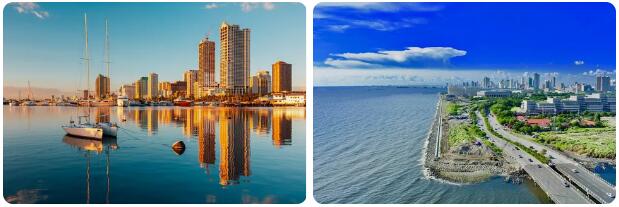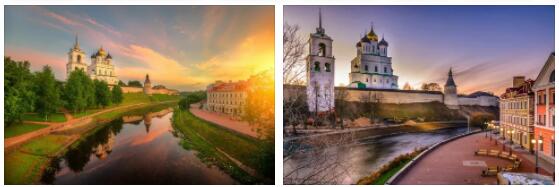Nepal 2006
Nepal in 2006 was a beautiful country full of culture and history. The people of Nepal were friendly and welcoming, and the country was rich in natural beauty. The Himalayan Mountains provided breathtaking views, with snow-capped peaks, lush green valleys, and deep blue lakes. The Kathmandu Valley was a bustling center of traditional crafts, art galleries, and temples. Of course, trekking was a popular activity for visitors interested in exploring the region’s magnificent landscapes.
According to constructmaterials, the country also had many cultural attractions such as Buddhist stupas and Hindu temples that were centuries old. Festivals such as Dashain celebrated the harvest season with music and dance performances throughout the region. Life in rural areas revolved around farming activities such as rice planting or collecting firewood from nearby forests. Despite its poverty levels, Nepal had a vibrant culture that attracted people from all over the world to experience its unique charm. In 2006, Nepal had made some progress towards modernization but still held onto its traditional culture that made it so special to those who visited it or lived there.
Yearbook 2006
Nepal. At the turn of the year, the Maoist guerrilla interrupted a four-month ceasefire on the grounds that the army made no counter-performance. The violence flared up again on a large scale.
At the same time, the civil opposition parties increased their protests against the royal monarchy that prevailed since February 2005.
According to CountryAAH, major public holidays in Nepal include Independence Day (September 15) and New Year (January 1). Local elections were held in February but a very low participation was interpreted as a popular indication of dissatisfaction with the royal power.
The Supreme Court dissolved the commission that, on the king’s order, would investigate corruption among civilian politicians, which resulted in the release of the ousted Prime Minister Sher Bahadur Deuba; another hardship for the king.
When the seven dominant opposition parties in April announced protests indefinitely against the king, the guerrillas canceled their armed actions in the metropolitan area as a support effort. Protests were carried out daily, both in Kathmandu and in other parts of the country, unrest erupted in several places and within a few weeks at least nineteen people had been shot dead by police and military and a thousand injured.
The Indian government put the king under severe diplomatic pressure to give up, and on April 24, King Gyanendra Bir Bikram Shah Deb announced that Parliament should be reinstated. Veteran Girija Prasad Koirala of the Nepalese Congress Party was appointed Prime Minister of a Unity Government. The interim parliament deprived the king of power over the army, declared Nepal a secular state, deprived the king of the right to veto laws, reduced his apanage by 70%, decided that he should not appoint his own successor and made the royal house taxable. In a month, the king was reduced from a single despot to a symbol figure.
Peace negotiations began with the guerrillas, who in the autumn agreed to put their weapons under UN control.
In November, the ten-year civil war was declared ended, after claiming around 12,500 lives. According to the peace agreement, the Maoists would be part of a new unity government and get a large number of seats in a new interim parliament. The guerrillas and the government also agreed on the main features of a new constitution with further reduced royal power. A commission appointed in May declared in November the king responsible for the spring shootings and recommended that he be punished.
Nepal Overview
Namaste, greets a friendly newcomer on a mountain trail. The peace is tangible and the scenery is breathtakingly beautiful.
Eight of the world’s fourteen highest mountains are located in Nepal. Nepal is known for its high mountains, small tenacious and hospitable mountain peoples, and interesting history. It is the ultimate adventure destination where you can try rafting, mountain biking in the mountains, hiking and climbing the snow-capped mountains.
- According to abbreviationfinder, NP is the abbreviation code for Nepal.
Nepal is known for its high mountains, small tenacious mountain peoples and interesting history. In Nepal, there is plenty to do and see endlessly. It is the ultimate adventure destination where you can try rafting, mountain biking in the mountains, hiking and climbing the snow-capped highest mountains in the world. In Chitwan Nature Park, you can spot rhinos and elephants on a wildlife safari in the tropical plain of Terai. Kathmandu, Patan and Bhaktapur are three ancient kingdoms a stone’s throw apart. Old buildings and temples built in the oriental style of the cities illustrate the rich cultural heritage of Kathmandula Valley.
Area: 140,800 km²
Population: 30,327,877 (estimate 7/2020)
Capital: Kathmandu
Population: Newari, Indians, Tibetans, gurus, magari, tamang, sherp
Religion: 81.3% are Hindus, 9.0% are Buddhists, 4.4% are Muslims, 3.1% are supporters of the local Kirat religion, 1.4% are Christians and 0.5% follow the local Prakriti religion.
Language: Nepal (also called gurkhali)
Currency: Nepalese Rupee (NPR)
Main products: Tourism, carpets, textile industry, rice, jute, sugar, tobacco
Form of government: Federal Republic






